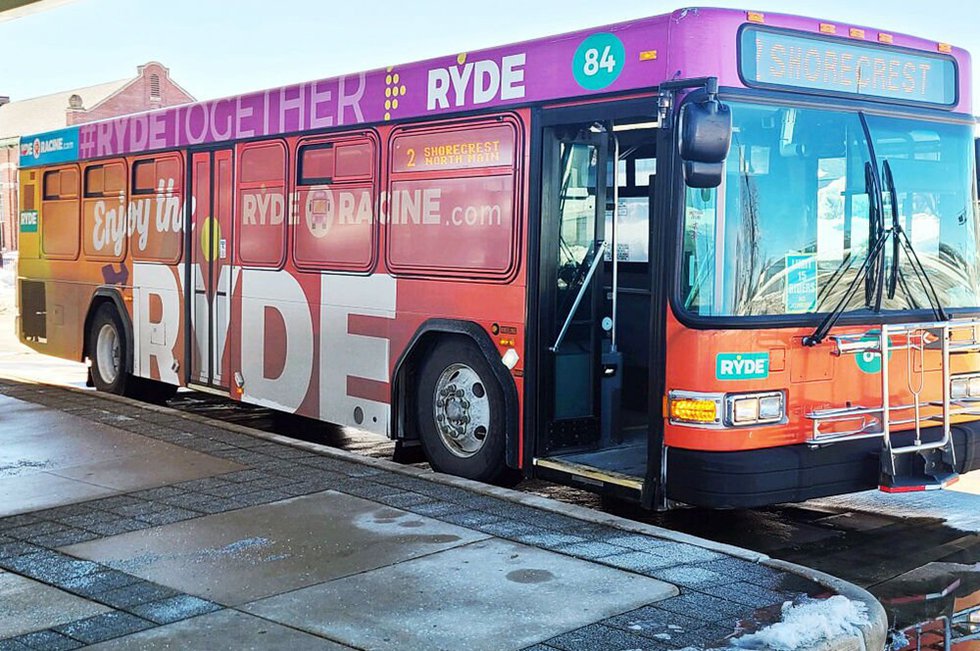
Alternative forms of transportations such as electric cars and trains have been on Americans’ minds for many years. Increases in gas prices and continuing alarming news about global warming have added to the discourse.
The scene in Racine, however, is reflective of hope that we can do better. The city received $9 million in grant money from the federal and state government to purchase nine electric buses. The largest fleet in Wisconsin, these buses will cut back on 2.3 million tons of carbon dioxide per year. The man responsible for leading this new project is Trevor Jung, Racine’s current transit and mobility director. He is also responsible for the popular electric scooters around the city. This interview discusses how mass transport links to inequality, why Racine is a good candidate for alternative transportation, and plans for handling the climate crisis.
How did you come to the transportation sector?
I was born in Russia and adopted when I was two years old. Growing up in Racine, Wisconsin, I developed a sense of gratitude for my hometown; anything I could do to give back and make it a better place, that’s what I wanted to do. After thinking about what the needs of my community are and what would make Racine the strongest place it could be, I thought that mass transit really is about access to opportunity. I went off to university for a degree in urban studies and came home to serve my community. I served on the common council for two terms as the chair of the transit commission and now I’m the transit mobility director of the city.
Has your degree in urban studies aided your new position?
It’s been valuable. Urban studies is a holistic field that is interdisciplinary and highlights such subjects as public administration, sociology and economics. The field shows that the health of a community involves all these different disciplines. For me, transportation is one piece of a very large puzzle, but it’s great insight because I understand the importance of land use and I’m connecting with other departments that have different charges but are just as connected to the wellbeing of Racine.
Explain how public transportation can aid in the fight against inequality.
Public transportation is critical in making sure we have equity in our community. It is the great equalizer: people take the bus to work, school or the grocery store. It provides a way of getting from point A to point B for those who can’t afford a car or choose to not own a personal vehicle. It is a tool for providing access to opportunity.
What’s been the strategy for promoting this system to those who may have reservations (i.e. those worried about budgets or public transport not reaching rural areas)?
We’ve got to market the transit system as a modernizing force. We can’t only talk about it as a way to get from place to place, we have to talk about it in terms of sustainability. We’re electrifying 25% of our fleet and exploring opportunities to power those buses through solar. It has started a conversation around mass transit in Racine which Is beneficial to marketing the system. Secondly, it’s about partnering with institutions such as Racine Unified School District and Gateway Technical College to get the students engaged with the system. Third, it’s about relationships with our neighborhood municipalities. We have intergovernmental agreements with Yorkville, Mount Pleasant and Caledonia to connect their residents and employers to our city. It’s bridging the urban and suburban divide that you imply in your question.
Why do you think Racine is an ideal place for experimenting with alternative public transportation projects?
Racine has a tradition of being innovative. At one point, we had more patents per capita than anywhere else in the country, so the spirit of innovation lives strong. We also have a built-in environment conducive to public transport with a dense urban center where there’s a population that needs public transportation. Due to that, there are multiple modes whether it’s the fixed route transit system or an on-demand system for the disabled and elderly or the scooter share, a partnership between the city and Bird Scooters. Whether you’re on a bus or on a scooter, we want to make sure you can get where you’re going safely and comfortably.
Where do you see this project heading in the future?
I think we need to have a “Multi Model Mindset,” viewing Racine as an opportunity for economic growth with public transportation as a tool for that. Transit oriented development is a way to spur economic growth using the built-in environment around transportation to encourage private investment. The city of Racine is exploring opportunities for projects like extending commuter rail from Kenosha to Racine and Milwaukee. The long-term benefits of that have been seen across the country where there’s fixed rail transit creates density and commercial development. Additionally, thinking about the future, we’ve launched an app for transit riders so they can see in real time on the phone where their bus is and which route to jump on. The word I’d use to describe the work we’re doing is “modernization, modernization modernization.” Excited days are ahead for transit in Racine.
https://shepherdexpress.com/news/community-news/trevor-jung-brings-electric-buses-to-racine/